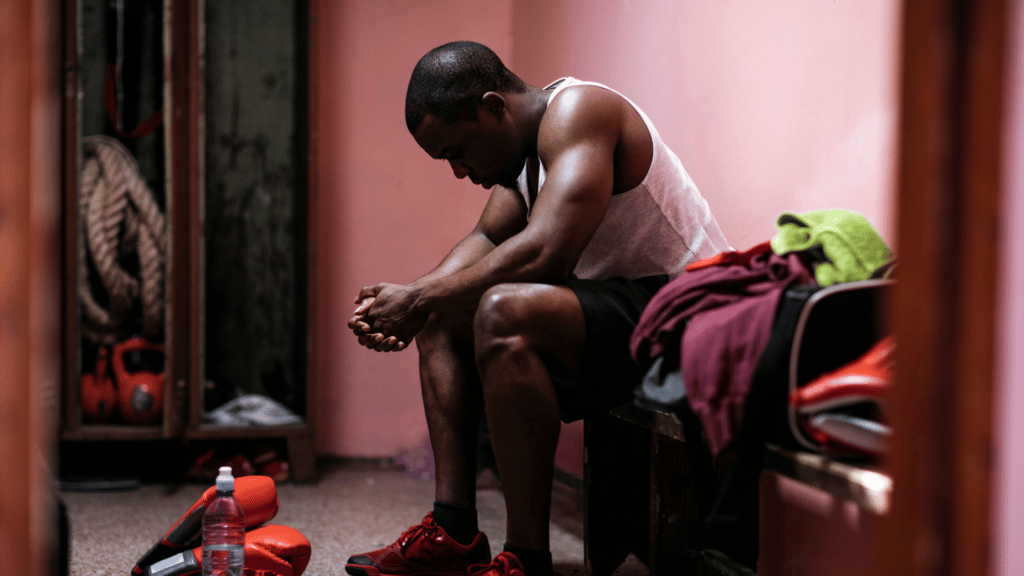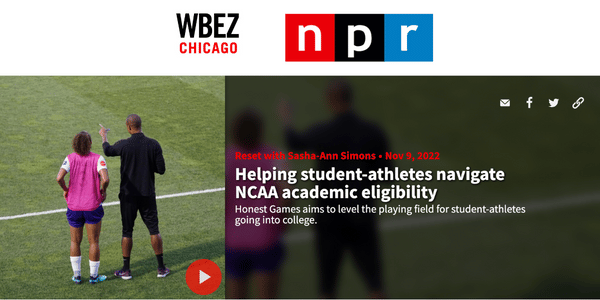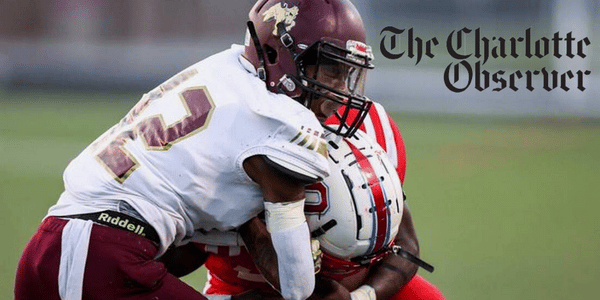How to Work with Today’s Athletes Within the Shifting Landscape of Athletics
Updated on May 1, 2025

One of the main topics of discussion in athletics during recent years has been how much change we are all experiencing, from athletes to coaches to athletic directors and support staff.
Adapting to new developments in the athletics world at all levels has become the norm and the rhythms, expectations, and proven models so many of us have grown accustomed to seem not to apply anymore.
Stephanie Bernthal, PC, former NCAA Division I Head Coach and Mental Health Consultant at Beyond Sport Coaching LLC shares the importance of supporting high school athletes’ mental health using a hybrid approach of foundational elements and adapting to a new mindset.
Know Which Foundational Elements to Keep
Your “Why” and Your Student-Athletes’ “Whys”
Our why is our guiding force. It is our anchor and sense of meaning. It helps us determine where and how we spend our time. When something is violating our why, we feel the friction of that value clash, and it allows us to adjust our path. If we are not in touch with our why, we easily drift and experience frustration as things around us change (including the very real pressures in and around sports). It takes hard work to be in touch with our why, and it also takes courage to stay true to it. Whys could be winning, cultivating excellence and leadership, building a family culture, imparting life lessons, giving opportunities through sport, growing a sport, etc.
Investing in understanding each of your student-athletes’ whys is not for the faint of heart but helps facilitate meaningful relational growth through sport. An athlete may not have ever thought about what keeps them showing up for difficult physical training, pressure situations, long hours of games and practices, and helps them weather disappointment. Is it the feeling of being a part of a team, mastering a new skill, competing and winning, gaining a college scholarship, or playing professionally? Some of the whys are big and long-term, and when we dig into them more with student-athletes, we can figure out smaller daily steps along the path that provide fulfillment for them. We help them find the “small wins”.
Ideas to Let Go of When Working with Student-Athletes
Mental Toughness is All or Nothing
Many of us may have cultivated a mindset that either someone is mentally “tough” or “weak.” Working within the athletics profession, we probably believe we were on the “tough” side of it and may struggle to understand those who “don’t have it” from our perspective. The reality is this – mental toughness is a spectrum. My training in mental health revolutionized my view of this, which changed my entire mindset as a college coach. At any level of sport, you will work with student-athletes who have developed mental and emotional muscles, and some that have undeveloped ones. Some have certain mental and emotional muscle groups that are out of balance.
Think of mental toughness more as mental and emotional strength, endurance, and flexibility. We train all those things in our athletes physically, but we can also build mental and emotional strengthening into our work with our student-athletes. How does a student-athlete handle things going wrong or not their way? How do they handle the unknown? How do they appropriately take responsibility for things within their control and let go of things outside of it? These skills can be learned and improved. We gain the tools to handle these situations by facing greater stress and building our toolbox to handle them.
Think of mental toughness as the act of weight training. We would never place a novice athlete in a weight room and expect them to max out during a workout. Their muscles have not learned the movement properly, nor have they built the strength to bear them. They may have all the beliefs and desires in the world, but it doesn’t change the physiological foolishness – they will likely get hurt. Through weight training, an athlete’s muscles experience being stressed by greater weight, which in time allows them to eventually bear more weight load.
When we frame a student-athlete’s mental and emotional stress load in a similar way, it helps to normalize the strain we all face and helps us see struggles and stress as opportunities. Questions to consider asking include what tools can we put in place to help us find greater health and success; and how do we identify mental and emotional obstacles and build the capacity to overcome them? This language is very different than saying someone is weak or has a weakness/deficit. Language has power in how we frame things! As guides in our student-athletes’ lives, we must be aware of how we use it!
Strong Athletic Performance = Mental and Emotional Wellbeing
Outward behavior does not always indicate internal mental and emotional wellness, especially in an elite athlete who has potentially learned how to compartmentalize to an incredible degree.
Awareness has begun growing around this issue due to high-profile athletes authentically sharing their need to take breaks, while seemingly being at the top of their game. Unfortunately, the athletics community has also lost promising lives, where elite athletic accomplishment gave little indication of a deeper internal struggle. It is important that we take time (before a crisis) to normalize student-athletes seeking tools for greater internal wellness, just as we would encourage them to focus on nutrition and physical training to accomplish a strong athletic performance. It is also key that we encourage athletes to be in a trusted community with others. Safe places to be authentic can be hard to find but are necessary for mental and emotional health.
Support and Coaching Only Happens During the Game
In addition to encouraging student-athletes to seek help when needed, two of the greatest supports a professional can give to an athlete are patience and consistency. When everything around an athlete’s life seems to be shifting, having a leader or mentor who demonstrates these qualities can be life-changing. These traits may not receive news headlines or awards but can impact your athletes in ways far beyond their performance.
As a former college coach, I can think back to times when my patience (typically a strength of mine) was lower. Maybe something within my team or within the athletics landscape was pushing my buttons. An example of what could easily take me to that place with my athletes was a poor attitude or low competitive effort. Rather than reacting out of my frustration, I learned to name it and be mindful of it. I have also learned to look at what is bringing this reaction out of me. Asking yourself the following questions can help:
- What opportunities do I have to be more patient?
- What opportunities do I have to be clearer in my communication and instruction?
- Where can I better understand the developmental or environmental factors at play with my athletes?
- What is a low moment for an athlete that I should let go of as opposed to a pattern of behavior that warrants intervention or accountability?
- When is a mature one-on-one conversation beneficial with an athlete?
When much is changing, these broad points can be helpful to determine where we put our energy, and in helping our athletes make those decisions for themselves as well. As professionals in the sports field, we have the ability to help normalize the journey of living, learning, failing (at times), and growing for both ourselves and our student-athletes.
By Stephanie Bernthal, PC – Founder of Beyond Sport Coaching, LLC
As a former Head Coach at the NCAA Division I level and licensed Professional Counselor, Stephanie Bernthal offers mental health education designed to equip institutions and coaches with tools specific to their role in the lives of student-athletes. She also provides one-on-one mindset and emotional coaching for athletes, coaches, and sports professionals.




